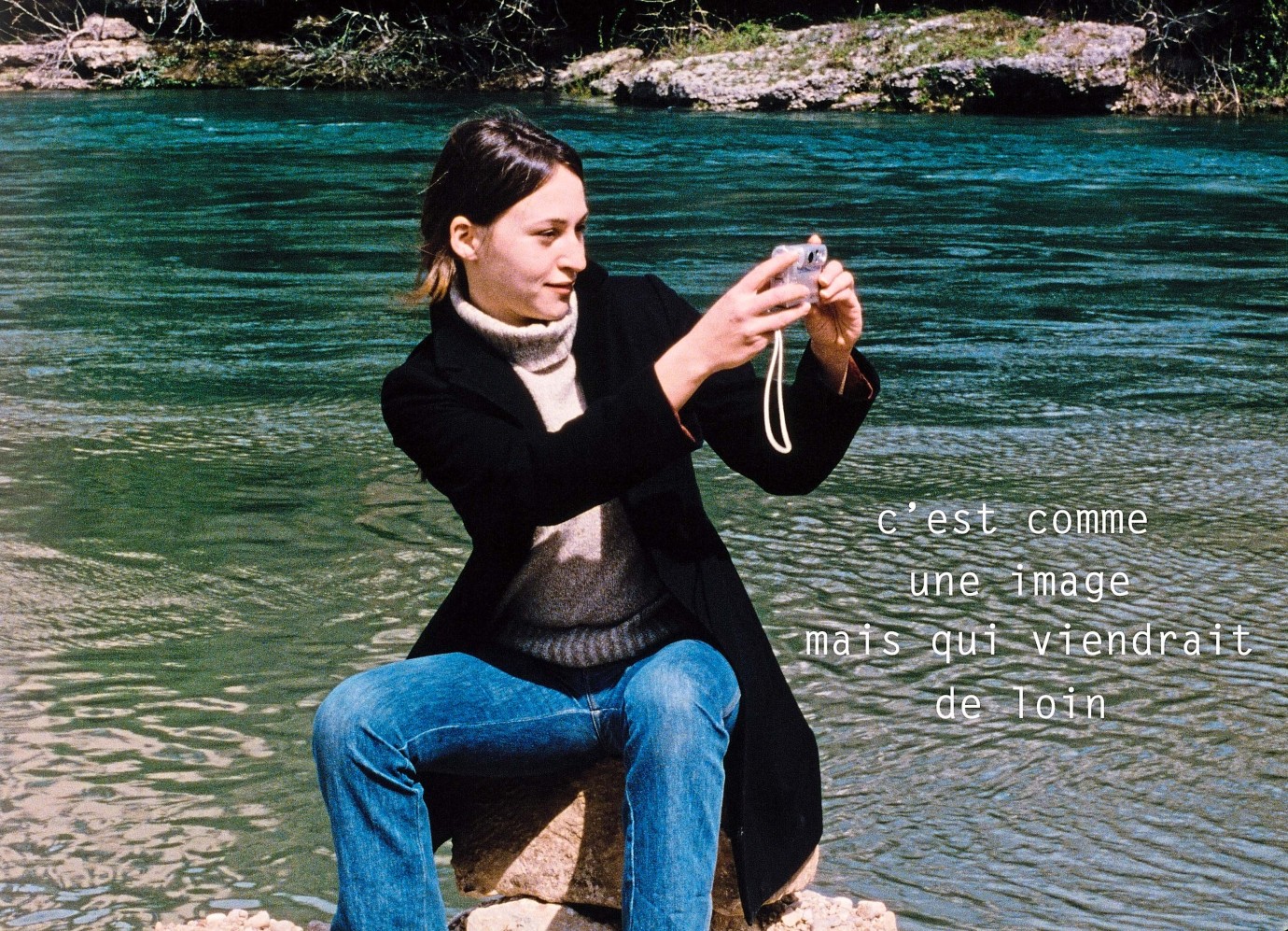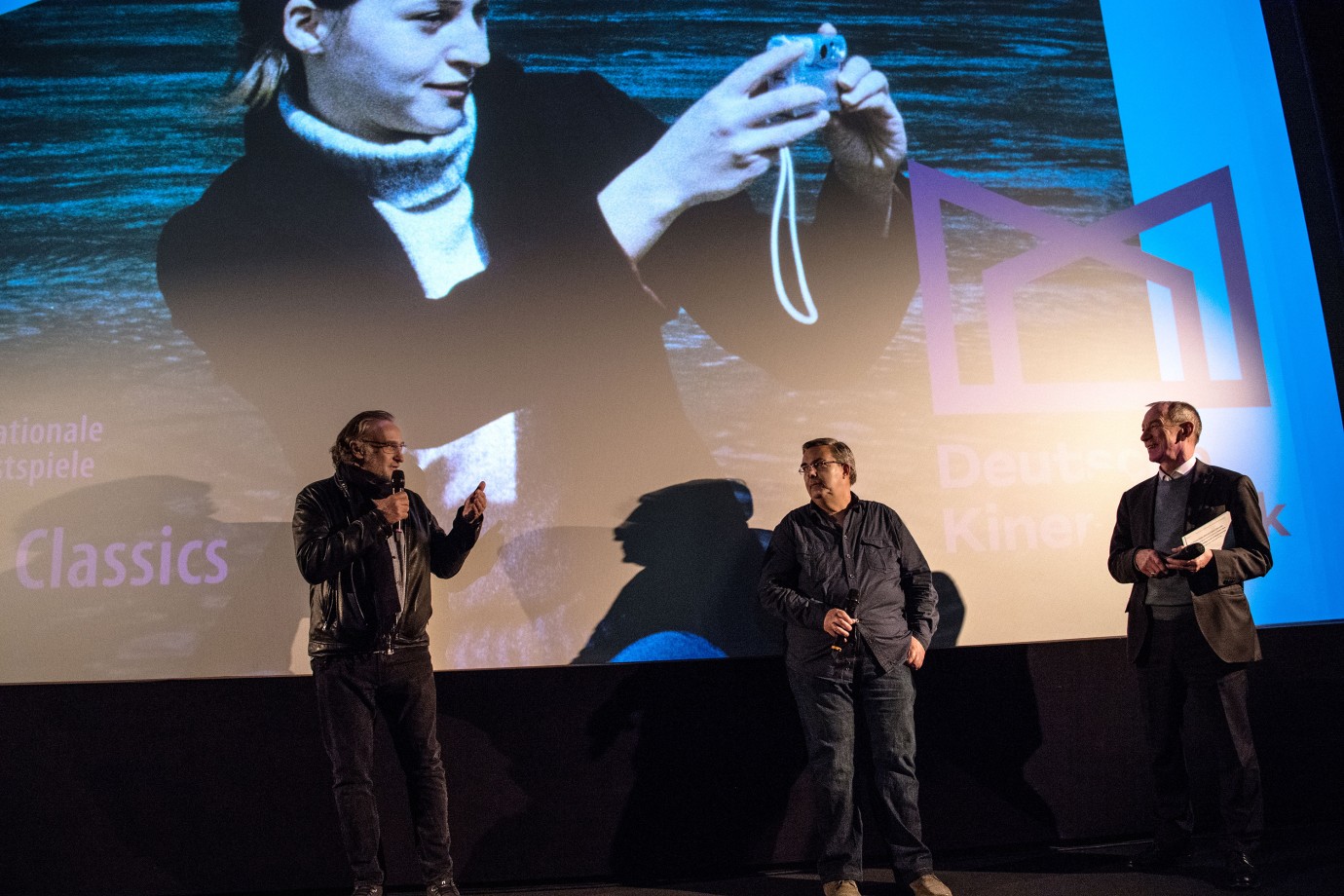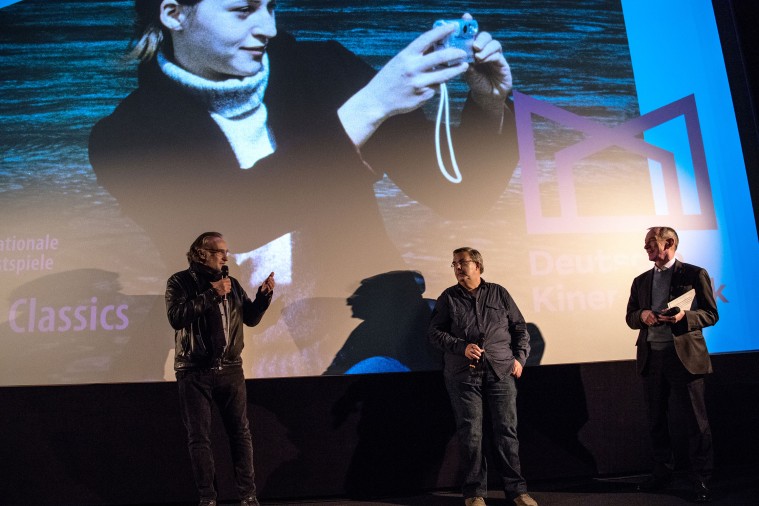Notre Musique
Our Music

Sarah Adler
Notre Musique | Our Music by Jean-Luc Godard
CHE, FRA 2004, Berlinale Classics
© Vega Film AG
With
- Sarah Adler
- Nade Dieu
- Rony Kramer
- Georges Aguilar
- Leticia Gutiérrez
- Ferlyn Brass
- Simon Eine
- Jean-Christophe Bouvet
- Aline Schulmann
Crew
| Director | Jean-Luc Godard |
| Written by | Jean-Luc Godard |
| Cinematography | Julien Hirsch |
| Editing | Jean-Luc Godard |
| Sound | François Musy, Gabriel Hafner, Pierre André |
| Production Design | Anne-Marie Miéville |
| Producer | Ruth Waldburger, Alain Sarde |
Produced by
Vega Film
Avventura Films
Peripheria
France 3 Cinéma
Canal Plus
Télévision Suisse Romande
World sales
Vega Distribution AG
Additional information
DCP: Vega Film, Zürich

Patrick Lindenmaier, Frédéric Maire, Rainer Rother
The cinematographer with the director of the Cinémathèque suisse and the section head during the film discussion.
Notre Musique · Berlinale Classics · Feb 15, 2022
Jean-Luc Godard
Jean-Luc Godard, born in 1930 in Paris. He was a critic for Cahiers du Cinéma before making his own mark on France’s New Wave cinema with À bout de souffle (1960) and Le Mépris (1963), thrusting him into the ranks of Europe’s star directors. After time utilising his filmmaking skills for political ends, he returned to cinema in 1980 with Sauve qui peut (la vie). He moved to Switzerland and made the documentary series Histoire(s) du cinéma (1998). He has since made numerous essay films that deal with historical, philosophical and topical political subjects.
Filmography (selection)
1962 Vivre sa vie 1965 Masculin – féminin 1967 Weekend 1968 One plus One (Sympathy for the Devil) 1982 Passion 1983 Prénom Carmen 1990 Nouvelle Vague 1991 Allemagne année 90 neuf zéro 2010 Film Socialisme 2018 Le Livre d’image
Bio- & filmography as of Berlinale 2022
